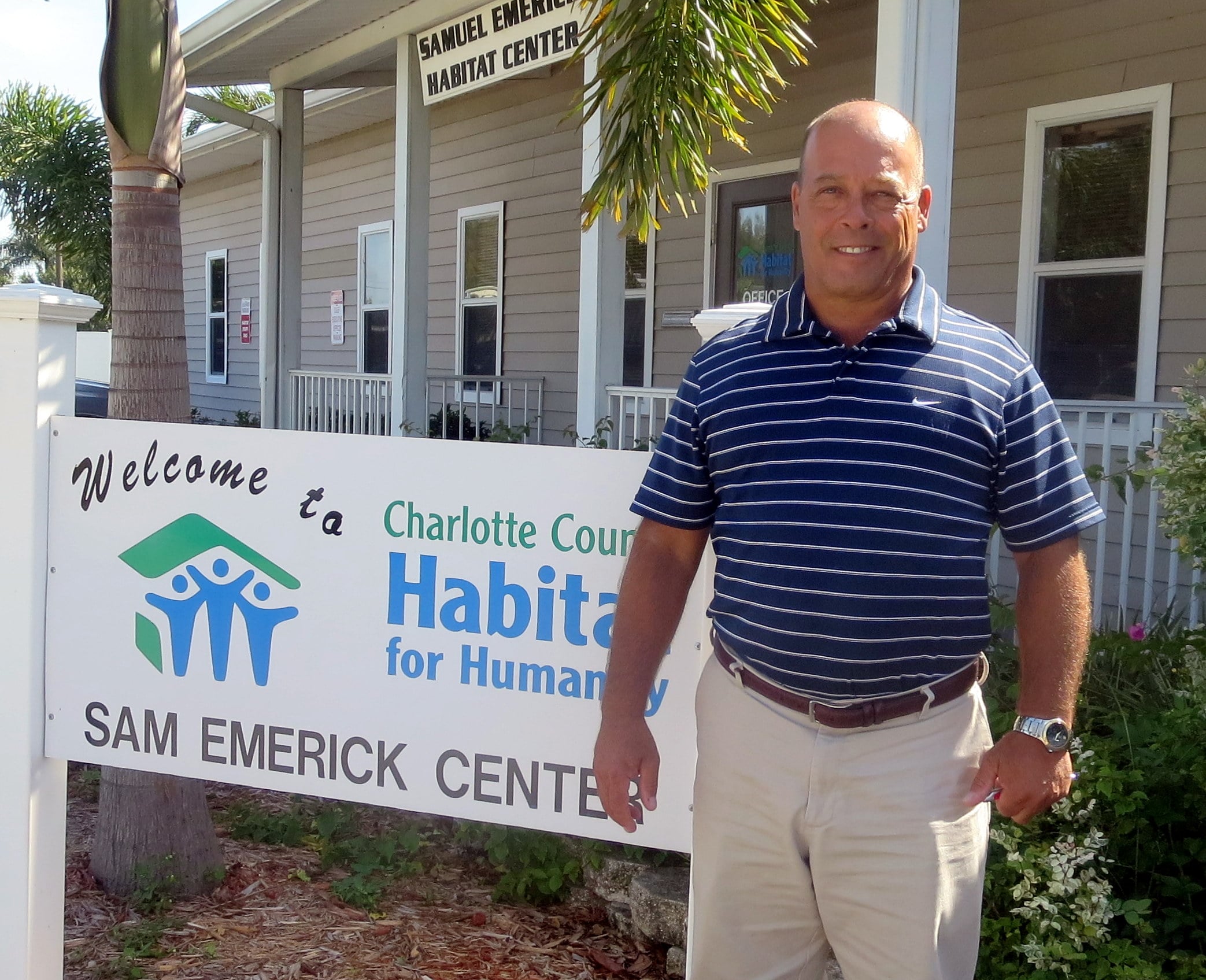
Fred Gyger
Habitat for Humanity, Charlotte County
Punta Gorda, Florida
Encore Fellow 2016
Get the latest Encore.org news, resources and opportunities.
Fred is taking his 35 years in the semi-conductor industry at Intel into managing logistics at the resale stores at Habitat for Humanity, Charlotte County. He will be developing procedures and processes for daily operations including shipping, receiving, and other operations.
“This job has changed my outlook on what’s truly important. It hits home, how you were able to make a difference in somebody’s life.”
After 35 years in the semiconductor industry, I retired from Intel Corporation. I didn’t know what was next. I knew I didn’t want to hang up my cleats just yet. I knew I wanted to do something completely different. Then I learned of the Encore Fellowship Network opportunity. I thought that giving back to the community sounded like a great idea, so I pursued it.
Encore arranged an interview with Habitat for Humanity in Charlotte County. I was hired as logistical manager, to write procedures for their resale stores, where people make donations and the donations are refurbished and sold. There’s a home-improvement center, a 6,000-square foot furniture showroom, a construction-supply store and a boutique. They had limited systems in place, so I began developing processes and procedures relating to shipping, receiving, daily operations, analyzing and reviewing changes. I had a business plan I started working on and I guess I was hitting all the marks. Next thing, they offered me the opportunity to manage all their stores and continue after my fellowship ended. I accepted.
In my previous work, I was involved in numerous start-ups, writing procedures, working on how to do things faster, cheaper and smarter. Procedures are key to success. But in the four Habitat stores, everyone was doing the same thing in different ways – this created confusion and inefficiency. My job was to create consistency and standardization, so employees and volunteers could work in any store and perform the same task the exact same way. Repeatability is key.
I was used to corporate America; retail in a non-profit was a culture shock. For example, I took certain things for granted. In corporate America, companies have deep pockets with an open checkbook and you purchase what you need to get the job done. Now, I am in a nonprofit; there’s no profit – there’s no profit margin – it’s very lean and close to the chest. We’re conserving notepaper! In corporate America, we’d order a case of paper. If we had equipment down for an hour we were losing millions so we spent what we had to – here, we are recycling everything. Everything gets a second chance. It sounds crazy, but it’s what we do. And it works.
I started managing the stores. Shipping, receiving and marketing. It’s the closest I’ll ever get to running my own business. It’s really fun. I like to keep busy. I’ve streamlined operations, I’ve reduced costs. We’ve increased sales, become more efficient. And at the end of the day, I see how it affects the community.
The money that is generated from the resale stores, and being cost effective at every turn, is how we manage costs to build affordable homes for lower income families in the community. Just because their income is low, does not mean home ownership is unachievable. People who would never dream of owning a home are provided the opportunity. The future homeowners have to be able to afford a $500 a month 0% interest free mortgage payment, which is generally ½ of what they pay now for rent. In the end, it’s their home – It’s a hand up, not a handout!
They have to do 300 hours of sweat equity and attend several homeowner classes, too. Many of them are working two jobs, living out of their cars, and some are even homeless because of the high rent costs in the area. It doesn’t necessarily mean they have no money, but they are trying to find something affordable. That’s what Habitat for Humanity does. We scrimp and save everything we can so we can build affordable homes. In most cases, if they walked into a conventional bank, they wouldn’t be a qualified candidate. It’s very rewarding to be able to step back and say, hey, we helped a family own a roof over their heads.
Personally, the internal shift is hard to explain. I used to donate money to the United Way and other charities, and help out at the church. Prior to seeing how the system works, you read about it, you see it in the news and in pictures, but it’s not the same. When you see the struggles that the future homeowners go through on a daily basis, then the joy that they express from their hearts is truly a touching moment. When your head hits the pillow at night, you thank God for everything you have. This job has changed my outlook on what’s truly important. It hits home, how you were able to make a difference in somebody’s life.
Every job has its gratification. Years ago, I worked construction I would step back and say, look at what we built today, in the high-tech industry, look how many computers chips we manufactured . . . Now I get to see where the rubber meets the road. Not only did the EFN open an opportunity for me in my retirement, it gave me the chance to be part of something larger — to be a mechanism to improve people’s’ lives. It never would have happened without the Encore Fellowship…. I’m grateful for that. I thank the EFN every day for the opportunity.
Stay up to date with the latest Encore.org news, resources and opportunities. Sign up here.